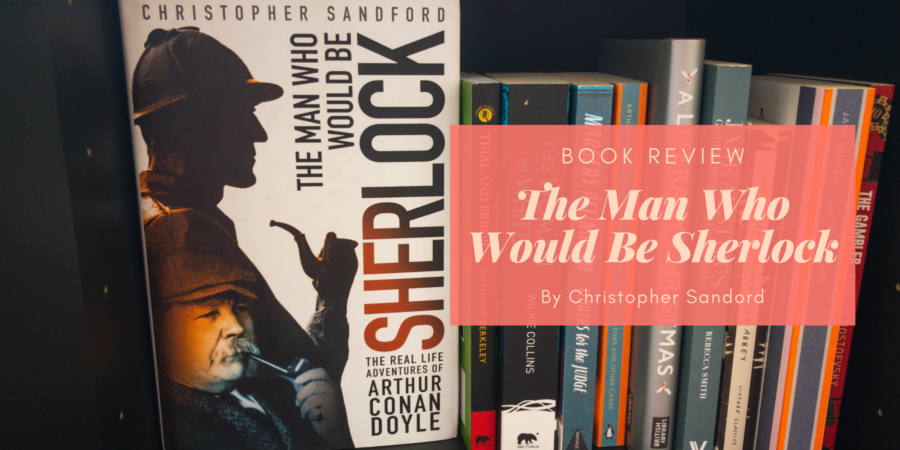Since I started reading the Sherlock Holmes stories, I thought it would be fitting to read more about the man who wrote the stories (no, not Dr Watson). Since I don’t believe the conspiracy theory that Holmes and Watson actually exist, it’s time to read about Sir Arthur Conan Doyle.
The Man Who Would be Sherlock isn’t so much a biography of Arthur Conan Doyle as it is a character sketch of the man, exploring the various cases that he came into contact with and his growing fascination with spiritualism. Reading the book, it’s clear that Conan Doyle was someone who never did things by halves and was always ready to leap to the defence of the underdog, traits that led him to champion a variety of causes, including some that ended up discrediting him (remember the fairies?).
If you enjoy true crime, you may enjoy the fact that this book is filled with cases that Conan Doyle was involved in. That said, only two cases are looked at in detail – the case of George Edjali, a solicitor of Indian and Caucasian descent who was accused of poison pen letters and mutilating horses, and the murder of Miss Gilchrist, where Doyle shows that you don’t have to like the person you’re helping to recognise that injustice has been done. These two cases get about two chapters each, while other cases that Doyle is involved in get a few paragraphs.
One thing that surprised me (and my inability to keep a coherent timeline may surprise you) was that Conan Doyle was alive while Agatha Christie was alive. For some reason, I always had the idea that Conan Doyle and the Sherlock Holmes mysteries were about a generation before the Golden Age of mystery and the authors belonged to different times, an idea that was thoroughly shattered when I read that Conan Doyle was asked about Christie’s mysterious disappearance.
Overall, this was an interesting book and by the end of it, I felt like I had a better understanding of Conan Doyle and the many facets of his nature – he could be gullible, he could be tenacious, he could be analytical, he championed the underdog, and he wrote some of the most famous detective stories. He’s more than his most famous creation, but Doyle also shares a few similarities with Holmes.

OMG I didn’t realise Doyle and Christie lived in the same period either!!!!!
I’m so glad I’m not the only one!!
I had no idea that there is a conspiracy theory saying Holmes and Watson were real. And…I think I liked it better when I was in blissful ignorance.
I found out from a collection of Holmes stories, of all things (I think it was in the afterword). Somehow… I’m not very surprised.
Whilst logically I knew that Conan Doyle and Christie lived in the same time period, I’d never had it actually stated to my face and now I feel quite conflicted hahaha
I had to google the two of them and I realised that Christie was born much earlier than I thought…
When Christie, Dorothy L. Sayers and Anthony Berkeley founded the Detection Club, they asked Conan Doyle to be its first president. He declined on age grounds, which was probably a wise choice — he died very shortly thereafter (while all of the others arguably had the peak of their careers still before them). But obviously, the reason why they asked him in the first place was that they all acknowledged the huge debt they, and Golden Age detective novelists in general, owed Conan Doyle (and Sherlock Holmes).
I’ve read about the Detection Club before, but I have no idea how I missed that!!